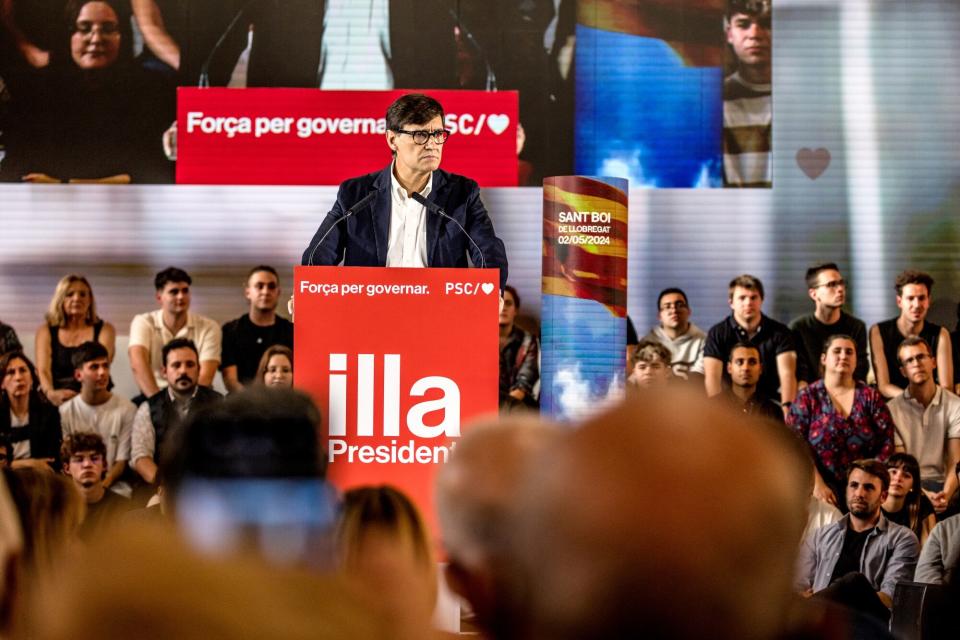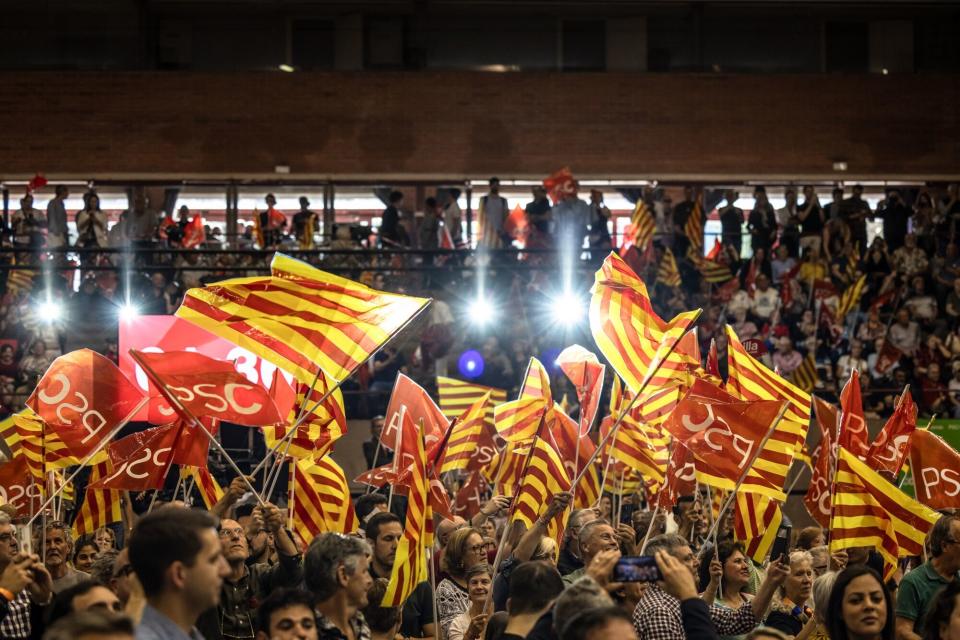Catalans Vote With Spanish Prime Minister’s Job in Play: What to Watch
- Oops!Something went wrong.Please try again later.
- Oops!Something went wrong.Please try again later.
(Bloomberg) -- Catalans vote on Sunday in a landmark parliamentary election for the wealthy Spanish region torn by a pro-independence movement and urgent challenges including overstretched public services and a severe drought.
Most Read from Bloomberg
Trump Vows ‘Day One’ Executive Order Targeting Offshore Wind
Tesla Rehires Some Supercharger Workers Weeks After Musk’s Cuts
Macron Puts French Banks in Play With Plan to Transform Europe
GameStop Shares Soar as ‘Roaring Kitty’ Revitalizes Retail Frenzy
China to Start $138 Billion Bond Sale on Friday to Boost Economy
Personal animosities and infighting in different camps may make it difficult to pick a new regional president in Barcelona by the deadline set for the end of August, potentially leading to new elections later this year. The election is also expected to have an impact on Prime Minister Pedro Sanchez’s fragile coalition in Madrid.
Here are the key issues to keep an eye on:
Impact in Madrid
A strong victory of Socialist candidate Salvador Illa may prevent secession-supporting parties from getting a majority in the regional chamber for the first time since 1980. The defeat of those parties could then lead them to withdraw support for Premier Sanchez in Madrid and accelerate the collapse of the ruling left-wing coalition in Spain, which has so far resisted a broader swing to the right across much of Europe.
Alternatively, a good election result for the pro-business Junts party of Carles Puigdemont, who fled to Belgium following an illegal independence referendum in 2017, could bring the fugitive Catalan leader back to power in Barcelona if he reaches an agreement with left-wing party ERC, another pro-independence group.
Puigdemont’s return as regional president would deal a blow to Sanchez’s strategy for Catalonia. That involved trying to dampen the pro-independence push by offering concessions, including an amnesty for Puigdemont and others involved in the illegal referendum.
Ahead of Sunday’s election, candidates also tried to address concerns about public services or investment in infrastructure, including to help tackle the impact of climate change. But Sanchez’s surprising decision to consider resigning as premier in late April disrupted the campaign and brought to the fore his clash with right-wing forces.
Unite or Divide?
Polls indicate that the Socialist party’s Illa will win but fall short of the 68 seats needed for an absolute majority in the regional chamber. If unlikely allies such as the conservative People’s Party or far-right group Vox combined with the Socialists, the bloc of forces opposing independence could hold an absolute majority, according to some polls.
Illa, who campaigned under the slogan “unite and serve,” may instead seek the support of ERC. That party’s candidate and current Catalan President Pere Aragones wants an independence referendum as a condition for giving backing. That’s a “red line” for the Socialists, Illa has said.
Separatist Negotiations
The regional election will also show who commands the pro-independence camp. While ERC remained a more pragmatic partner for Sanchez over the past years, Puigdemont’s Junts refused to negotiate with the Socialists in Madrid until they got the amnesty agreement and then helped Sanchez win his latest investiture.
Puigdemont is expected to win more votes than ERC’s Aragones. If the pro-independence camp wants to retain power, the two would need to set aside a personal rivalry that was further stoked in 2022 when Junts broke with the Aragones-led regional government, leaving it in a weak position and leading to the decision taken in March to call a snap election.
Newcomers and Exits
Polls indicate a new far-right pro-independence party called Alianca Catalana may get as many as four seats. The newcomer would probably erode some support for Junts and complicate agreements in parliament as parties on the left have refused any deals with the new group.
Meanwhile, Ciudadanos may fail to win seats. The liberal party born in Catalonia nearly two decades ago took first place in the regional election in 2017 at the peak of the pro-independence push.
The Day After
Exit polls will be released shortly after voting ends at 8 p.m. in Barcelona.
Candidates will likely provide more clarity about potential partners in a regional government, possible concessions and red lines after the vote count. They dodged many of these issues during the campaign.
For Sanchez in Madrid, the election aftermath will also offer clues about how difficult it will be to pass legislation, including a delayed budget, and his options to remain in power. Even if his party has a good election night, it won’t be straightforward. To avoid the risk of losing support from Junts in the national parliament means the Socialists will need to calculate carefully if they can just partner with ERC in a regional government in Barcelona.
Most Read from Bloomberg Businessweek
Cheap Prison Labor Is Keeping People Locked Up Longer, Suit Alleges
‘The Caitlin Clark Effect Is Real,’ and It’s Already Changing the WNBA
©2024 Bloomberg L.P.





